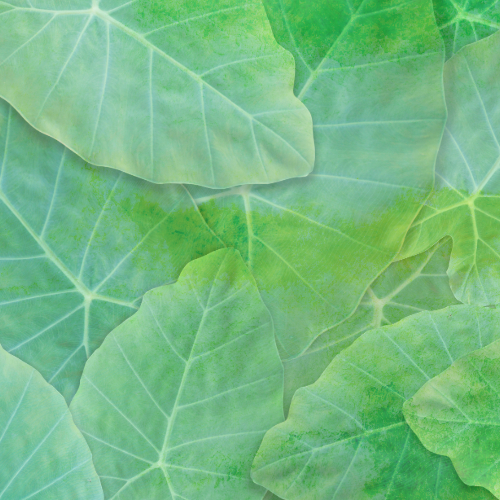Through the Corridors
Short story
by Vidya Premkumar
They say our people hold memories the way forests hold mist—thick, invisible, alive.
I remember the womb. I remember sound before form: a sharp horn of the metal beast slicing the warm hum of water. My mother flinched, and I tumbled in her belly like driftwood in a flooded river. That sound never left me. Even now, when it cleaves the air, I forget my body.
As a calf, I had no fear. My world was made of mother-warmth, sister-shadow, father-steady. The forest was breath and rhythm: twigs cracked beneath deer hooves, birds’ day-long gossips, and the trees’ language of shade.
Among the trees, one tree bloomed brighter than the others. The Manjakonna. Its yellow blossoms hung like caught sunlight. I’d shake its thin branches to summon golden rain. My mother would scold, softly smiling. My grandmother called the tree rare. She first saw one at Tholpetty, its blossoms glowing like the sacred Kanikonna that our ancestors knew and revered. Sacred sight once, now a silent plague spreading from Bandipur to Muthanga. They had crept in from another land, she said. Now they bloomed everywhere, smothering food-bearing trees, feeding on our dung, drinking the water meant for roots that remembered us.
Even blessings, when unchecked, become devourers.
My father stood at the forest’s lip at dusk, staring at the black ribbon humans call a road. “We shouldn’t be here,” he murmured. “But the forest no longer feeds us.” His voice was brittle, like dry bark ready to split. It had a heaviness I did not yet understand, a weariness deeper than hunger.
That night, I lay pressed to my mother’s side, our closeness no longer enough to keep the hunger at bay. The forest hummed differently, breathless, as if bracing. And still the Manjakonna rained gold, and the gold turned to dust, and the dust grew more trees that did not remember our names.
Then, silence.
Suddenly, the road fell asleep. For two years, it did not scream. We grazed near its stillness. I crossed alone once, reckless with wonder. My sister laughed and thumped my head with her trunk. “Still a calf,” she squealed.
But roads only rest. They never forget.
It woke with metal bellows and songs that throbbed like hearts outside their cages. Metal beasts returned—fast, blaring, stuffed with small humans peering out of windows, their eyes boring through us. Eyes that flickered—was it joy? Or something lonelier?
My sister, always sharper than me, said, “They see in us what they lost.”
They came in waves. Cameras. Laughter. Flash. Drunken stumbles into our silence. Some reached too close. We warned. We flared. Sometimes they were hurt. Not because we wished them harm, but because they never learned to listen.
My father grew taut. “Stay with your sister. Stay away from the road.” His voice no longer allowed argument. I obeyed. But I watched his gaze fix on that road—part dread, part longing. What happens when home forgets to feed you?
Tension cracked the air like dry leaves as hunger gained a stranglehold on our tribe. Once thick as roots, my father and uncle now thundered against each other. Then one night my uncle left. No goodbye. Just silence shaped like absence.
The forest grew brittle. Heat climbed the trees and refused to leave. My sister stayed close. The grasses tasted like regret. The birds sang through gritted beaks. We survived.
Finally the sky broke open.
Rain.
We followed the old routes— the green corridors our grandmothers once knew. We reached Lakiddi, where springs were born, where the sky crouched low and grey, heavy with its own grief. From the high ridges, we watched the world fold itself into colour.
Punjirimattam. Mundakkai. Villages clinging to the forest’s hem like beads on a frayed thread—bright, breakable, barely holding. They scattered below us like toys dropped by a careless sky, walls painted in parrot green and hibiscus red, roofs like upturned petals.
We watched them, breath held, the buzz of their lives drifting up like distant bee song. Sometimes, my thoughts wandered: what was it like to live inside those boxes? To never feel bark underfoot, or the pulse of soil in the rain? To sleep behind shutters instead of stars?
But before I strayed too far, my sister’s trunk would nudge me back. “This is home,” she’d say. And she was right.
The Manjakonna was far now, and light filtered differently—less golden, more free.
My sister bloomed tall beside me. I grew tusks.
We played where the water began.
At the spring, where earth gurgled into liquid, we leapt and rolled, flung arcs of water into the sky. Our laughter scattered the birds. Our trunks painted the air. Afterwards, we blanketed ourselves in river sand, fine and cool, a second skin. The elders chose mud—thicker, anchoring. The deep lines on my mother’s face had smoothed with rain. She laughed again, sometimes, and the sound surprised even herself.
My father spoke often now, but his voice had changed. It no longer carried command—it flowed like a river over stone. He spoke of becoming, not just in bone and tusk but in sense. He spoke of when to push and when to pause. He spoke of storms that live inside and the ones we walk through.
At night, I curled into the scent of my mother, and her voice poured ancient stories into my ears. Tales old as tree rings, worn smooth by time. I followed her words into sleep, where they bloomed into dreams.
Then the rain changed its mind.
It stopped falling and began crashing. Not droplets, but daggers. Not wind, but wail. The sky broke into a scream. And the forest held its breath.
My father moved first, his voice cleaving the storm: “Down the mountain. Now.”
We obeyed without question. Urgency tugged at our feet.
The coffee plantation below—usually off-limits, laced with human smell—was now abandoned, and the trees stood still, waiting. We entered their shadow. For four nights, the rain didn’t sleep. It drummed on our backs, throbbed in our bones. The air was so wet it couldn’t breathe.
Then came a sound that did not belong.
Not wind. Not water.
It rumbled deep, like the earth remembering something too old to name.
My father froze, ears spread wide.
“The mountain is breaking,” he said.
I clung to my mother’s tail as the slope shifted beneath us. Far below, the river uncoiled into a monster. At Mundakkai, it rose and screamed and swallowed. Homes folded. Shops vanished. Temples dissolved. The flood had teeth, and it was hungry.
Then we saw them.
Two specks in the chaos. A child. A woman. Clinging to a tree like it could remember them. They were soaked, shivering, bones wrapped in skin. Somehow, they found the edge, collapsed into mud. Too tired to flee. Too close.
Father raised his trunk. Stillness.
We froze, statues sculpted from storm.
The woman looked up.
Her eyes found my father’s. And in that flicker of gaze, something passed—older than fear, gentler than surrender. She knelt. Her body spoke a language we had no name for. Trust.
Then he moved.
One slow sweep of trunk.
My mother, my aunts—they stepped in. Not as threat. As wall. As shelter. We circled them. The rain tried to reach them. It couldn’t.
That night, we did not sleep.
My father stood guard, massive and unmoving. The woman curled beside the girl, both barely breathing. When the first light cracked through the darkness, she looked up again, bowed deeply, and woke the child.
Then they walked away—two moths from a drowning world, their wings tattered, their feet unsure.
We watched until they disappeared into the wreckage.
Then we turned.
The village no longer existed. It had become memory. The river still roared. But it had taken enough. For now.
We returned to the forest.
Each step felt heavy, shaped by water and witness. I stopped, kicked the wet earth. Mud sprayed like accusation.
“They’re gone,” I said. “Everything’s gone. What does it matter?”
Father came beside me. Broke a branch. Let it fall.
“It’s not about mattering,” he said. “It’s the way of things. The forest breathes. We breathe. We belong. That’s enough.”
He nudged me forward.
I walked.
The trees folded around us again. The air thick with wet and green. The ground scarred, but alive.
And beneath my feet, the forest remembered.
Home.

About the Author
Dr. Vidya Premkumar is a poet, artist, educator, and storyteller based in Wayanad, Kerala. A former English Assistant Professor, she draws inspiration from nature, memory, and everyday acts of resilience. Her work appears in Pan Haiku Review, Failed Haiku, and Femku Mag. She founded Jñāna Vistar, an educational initiative focusing on skills beyond traditional education. When not writing, she tends to her rescue animals and the slow rhythms of forest life.


